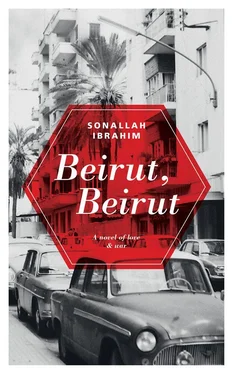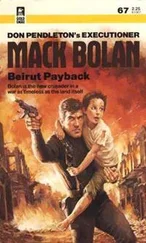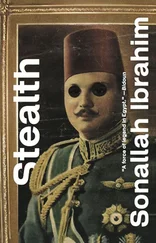“You’re in luck that I want to talk logically with you. It gives me a chance to explain my point of view.”
I paid no attention to him and went on: “It’s based on you being a majority in Lebanon. That’s a subject for debate. Because there are those who say that Muslims are the majority now. In any case, whether you are the majority or minority, this doesn’t change the nature of the danger that is threatening Lebanon. It’s the same danger that threatens the Arab and Muslim countries and all the states of the third world.”
He shook the ash from his cigarette into a silver dish on which the white bayonets of three rifles embraced each other, and said, “You’re talking about an imaginary danger. I’m referring to Arab expansion, and that’s a real danger.”
I laughed. “Where is this Arab expansion? There’s only an Arab nationalist awakening that is uprooting all religions. In fact, some activists in this awakening are Christians, as you know.”
“They are Arabs. As for us, we are Phoenicians.”
I looked at him in disbelief.
“Are you being serious? I’ll say it again: whether you’re Phoenicians or Arabs, it won’t change the reality of the shared danger that confronts all Lebanese, Syrians, Iraqis, Egyptians, Iranians and so on.”
He put out his cigarette in the gun-ashtray and lit a new one.
“So what do you think about the oppression that Christians are confronted with in Egypt?”
I took my time in answering as I thought of a suitable response. He put on a victorious smile and said, “Have you thought about it? Have you considered it?”
“I won’t claim that there isn’t discrimination,” I hastened to say. “But it doesn’t rise to the level of oppression. Also, part of it is artificial. The other part is a legacy of the past. When we imposed secularism on the state, we put an end to all trace of it.”
“What I’ve seen in Egypt is just the opposite of that. It’s a profound and historical oppression. And it’s also growing.”
“This is what I meant when I said that a part of the existing discrimination is artificial. It’s what Islamist groups are practicing and calling for. I myself have heard one of these fanatics say that Pope Shenouda is more dangerous to Egypt than Begin is. In that regard, he is entirely in agreement with you. You are allied with Israel against your fellow countrymen.”
He shrugged. “You can’t blame a drowning man for asking the Devil for help.”
“How do you know he will really help you? That he won’t seize the opportunity to devour you?”
He laughed derisively. “Will he devour a corpse that foreigners have squeezed the life out of?”
“You mean the Palestinians? Their presence in Lebanon is what protects you from the Israelis.”
“No one protects Lebanon from anything. Our weakness and our neutrality is our weapon. So long as we don’t attack anyone else or threaten them, no one will put us in harm’s way.”
“Do you really think that?”
His cheeks flushed red. But he continued to hold fast to his outward calm.
“What matters to me is your admission of the actual oppression of Christians in Egypt. It makes me happy that we are in agreement on that point.”
“On the contrary,” I replied. “We are not in agreement at all. There really is discrimination. But you oppose it with reverse discrimination, while I oppose it with the complete elimination of religious division. During the fighting in 1975–76, there appeared among you a movement to remove religion as a category from identity cards. That’s what we need. Secular states, not religious ones, where the place of the individual is determined on the basis of his ability, not on the basis of religion, family or tribe.”
“You mean, abolishing sectarianism?” he said disparagingly. “That’s impossible. The end of sectarianism means the end of religion.”
“I don’t think I can persuade you to come around to my point of view,” I said, with a note of weariness. “What I’m asking of you now is to give me my papers and my passport and to let me go.”
He raised his eyebrows. “Just like that?”
“Yes, just like that.”
He let out a short laugh. “I didn’t expect that you would get bored of our hospitality so quickly,” he said.
I followed his lead, saying: “What hospitality? I haven’t eaten a thing all day. The room is cold, with no bed, blankets, or light. There isn’t even any water to drink.”
He feigned interest and turned to the old man who had escorted me, saying, “Is this possible? No water?”
The old man muttered something about how he would get me some.
“Unfortunately, today is a holiday,” the young man said to me with a malicious smile. “Shops are closed. Our warehouses are, too. But we’ll make everything available to you tomorrow.”
“Tomorrow is Sunday,” I said. “Everything is closed as well.”
“That’s your bad luck,” he said coldly.
He nodded to the guard, who came up to me, grabbed me by the arm, and led me out.
My bad luck was confirmed when the following day arrived without sunlight. I kept my eyes on the skylight, waiting for light and the warmth it would bring. But the sky stayed dark. Soon rain was pouring down in torrents. Drops of it scattered across the skylight, and then collected beneath it on the floor, in a small puddle.
I resisted the cold by continually moving. I avoided thinking about what could happen to me at the hands of the Phoenician and his men. From time to time, I put my ear to the keyhole. But I couldn’t pick out a single sound that revealed that anyone except myself was there in the building.
After some time, there came to my ears the sound of footsteps approaching and stopping at the door. The door opened to reveal the young man who had brought me the urine bucket the day before. On the floor, he put a tray that had on it a loaf of white round bread, a paper carton of milk, and a cup of tea with steam rising from it. He had hardly turned away before I hurried over to the tray. I held the cup of tea in my hands and savored the warmth of its contents. Then I turned to the loaf of bread and milk.
The paltry meal only compounded my desire for coffee and cigarettes. But I distracted myself by walking and jumping, and by a series of waking dreams. From there I quickly moved on to making big plans — a stage known to every prisoner after a period of confinement. I worked out plans to quit smoking and drinking, develop an exercise regimen, live near the ocean, and double the number of hours I spent writing.
Darkness was about to fall when I set about propping up my corner with more cardboard boxes, and then I coiled myself into a ball and my eyes succumbed to sleep.
I entered a deep, uninterrupted slumber that I didn’t emerge from until dawn. I watched the light spread out without leaving my place. But soon enough I moved when the sun’s rays fell on the wall next to the skylight and spread out over it in the shape of a rhomboid heading toward one of the corners below. I stood under the sunny rectangle, looking for a little warmth. Its area gradually expanded, and I was able to put my hair in it, then my forehead, my ear, and my eye.
I enjoyed the warmth spreading on my face, and then my chest. I spent the following hours between the patch of sunlight and the door. Muffled sounds, coming from different directions, were penetrating through it. Several feet passed by it without stopping. But I didn’t lose hope that the person who carried the tray would be here at any moment.
The sun’s heat reached its high point, and then began to recede. I amused myself for a time by hunting a fly that had settled on yesterday’s tray. Finally, I heard the sound of the key turning in the lock. The door opened to reveal the old guard.
Читать дальше












